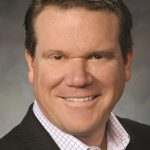Author: Eddie Botes
A little while ago, I wrote an article titled “Critical thinking for the Adaptive Leader – nine key characteristics to What are your sacred cows”, which featured on the Conference Speakers International website. I briefly highlighted nine characteristics that Adaptive Leaders adopt to navigate a changing world. For this article, I am going to be […]
A little while ago, I wrote an article titled “Critical thinking for the Adaptive Leader – nine key characteristics to What are your sacred cows”, which featured on the Conference Speakers International website.
I briefly highlighted nine characteristics that Adaptive Leaders adopt to navigate a changing world. For this article, I am going to be looking into the first characteristic in a little more detail.
Critical thinking and problem-solving have consistently been voted as key skills for leaders to develop in the twenty-first century. It is becoming increasingly important for leaders to make the right decisions and that involves a key characteristic of critical thinking.
Adaptive Leaders start from the premise that they may be wrong and are open to their minds being changed.
I grew up in a fundamental religion where we believed in the absolute authority of its religious text and its founder. The founder of this religion described its Keystone religious text as “…the most correct of any book on earth”. Many consider this religion a cult, although whilst I was part of this religion, this would have been a claim I would have vehemently defended against.
As a youngster, fresh out of the military, I spent another two years as a missionary, proselyting door to door to anyone who would listen. I believed passionately in the message. In fact, not only did I believe, but I proclaimed a sure knowledge of the truthfulness of the message that I was teaching.
Every facet of my life was influenced by the teachings of the church. It permeated every aspect of my thinking. Every major life decision that I made was done within the context of its peculiar doctrine. There was no room for doubt of any kind. As a member, you are very strongly discouraged from reading any literature that might raise questions about any of the truth claims which the church makes. I never questioned.
About fifteen years ago my life was thrown into turmoil when I came across a book that challenges the authenticity of the churches foundational text. A former Bishop of the church and geneticist set out to prove, through DNA, the truthfulness of some of the major claims made in the book. He didn’t find what he was looking for. In fact, after reviewing the evidence he had to conclude that the claims were fabricated.
The book raised a few questions for me and sparked an almost three-year obsessive drive to challenge all the sacred cows that I had. All of the beliefs that were never questioned now became the object of intense scrutiny. Did I really have all the answers to life’s complex questions? Or hadn’t I been asking the right questions? Did my world view really contain “A fullness of the truth”?
The proverbial rug began unravelling very quickly from beneath my feet and I soon discovered that I no longer had a sure knowledge. In the face of rigorous testing and compelling evidence, all of my sacred cows became indefensible. And so began a process of change and discovery that – upon reflection – became my journey towards self-awareness.
The reason I tell this story is that our leadership culture has, for decades, focused on persuasion and influence. We celebrate leaders that are decisive, persistent and unwavering in their convictions. There is no doubt that persuasion and influence are important skills for leaders, but in a world that is changing faster than ever, I believe it is far more important for leaders to be persuadable. The real competitive advantage for leaders now is the ability to change their minds in the face of new information and new circumstances.
In a Volatile, Uncertain, Complex and Ambiguous world, leaders need to make good decisions. When we are open to our minds being changed, we use all the available information, even the stuff that contradicts what we already believe to make the best judgement. Adaptive leaders also recognize that part of the process of adapting to changing circumstances, is that we need to change our minds – and change at speed. With the increasing pace of change, the best leaders lean aggressively into these changes and question the status quo. They are not uncomfortable receiving feedback, even if it contradicts a belief they have about themselves. This allows them to improve at a more rapid pace than others.
In prevailing Leadership culture, we have bought into the myth that leaders who change their minds are flip-floppers or pushovers. This is simply not true. Adaptive leaders are very clear on their reasons for changing their mind. They don’t pander to a certain demographic but rather do so because it’s the right thing to do. They don’t apologize when it’s an intelligent decision.
The really courageous leaders don’t wait for feedback from others before considering a shift in their mindset. They actively look for information and trends that might threaten their industry or an existing product they have on the market. It’s important to take note here that being open to our mind being changed does not mean that we are gullible. Leaders who are open to their mind being changed don’t always change their mind. It just means that they have a genuine willingness to change their minds in the face of good evidence. The key here is “In the face of good evidence”. Adaptive leaders don’t change their minds if they haven’t been presented with good reasons to change their mind.
What are your sacred cows and are you willing to kill them? What are the issues in your business and life that are worth changing your mind on? What are the decisions that you can make where you stand to make a huge gain by being open to change?
Eddie Botes is an international speaker and facilitator and is the founder of Leadershift, an organization that is dedicated to helping organizations and leaders to build a focused and adaptive organizational culture and finding What are your sacred cows.
Contact Us at WeSpeak Global and follow us on Twitter
The articles, video and images embedded on these pages are from various speakers and talent.
These remain the property of its owner and are not affiliated with or endorsed by WeSpeak Global.

The key to unlock your personal POWER OF SELF-DISCOVERY lies in your identity, it all begins and end with you. Your Identity is your authority. Your life is the fruit of your identity. Success therefore begins with you! During my preparation of the 2nd installation of the #BIOConnect Vision Crafting and Strategic Planning Webinar that […]

Motivation in Motion – 7 Steps to Help You Stay Motivated Being and staying motivated are two completely different things with different obstacles and benefits. Everyone, particularly those in the selling profession, have certain things which can keep them motivated. Here are seven steps to help you stay motivated personally and professionally. 1. Dream Bigger […]

We are all spending a lot of time inside our homes. How much do you REALLY need? For those whose homes are a disorganized clutter zone, this could be stressful and result in more anxiety than isolating already brings to the table. If you are constantly tripping over stuff on the floor, and having to […]

WHAT MAKES A WINNING TEAM: 4 key lessons from the lion pride and the victorious 2019 RWC Springbok rugby team It was an exceptional result that captivated a nation. One year ago this November South Africa’s national rugby team, the Springboks, lifted the Webb-Ellis trophy into the Yokohama sky, winners of the 2019 Rugby World […]

It’s that time of the year for New Years resolutions again, where most of us put together a comprehensive list of resolutions and goals to be a better version of ourselves by thinking what we would ideally look like in the future: lose weight, get fitter, be a better spouse, etc and Why New Years’ […]

Change Your Sleep, Change Your Life: Do you suffer from the inability to go to sleep? I have my entire life. Until lately things have finally begun to change, but it is a choice, as I’ve begun to make and keep simple promises that are making a huge difference. Change Your Sleep, Change Your Life […]

Imagine attending an event where everything seems to fall into place effortlessly with a Skilled Master of Ceremonies. The transitions between segments are seamless, the audience is engaged and entertained, and the overall atmosphere is charged with energy and enthusiasm. What you may not realize is that behind this seemingly effortless experience is a skilled […]

Siphiwe Moyo’s new book, called “Your Next Move” hits the shelves this week. Career Strategies to Survive and Thrive During Covid-19 and Beyond. As we all think about our responses to COVID-19, we have to try both offence and defence career strategies to survive. In other words, you need to try and hold on to […]
No results available
Our Mission
© All rights reserved 2025. Created using VOXEL THEME